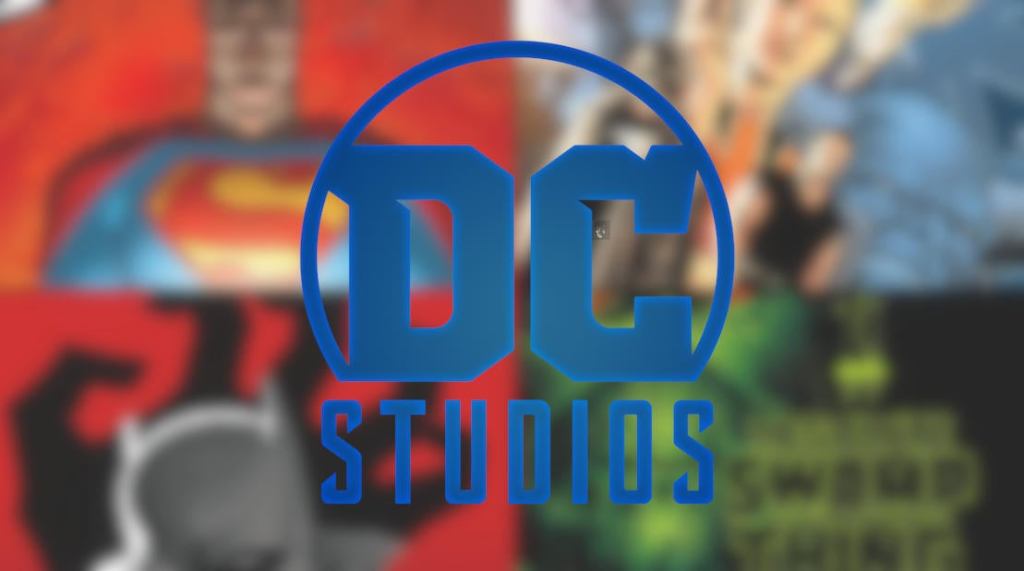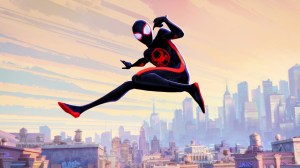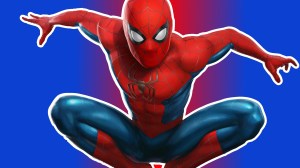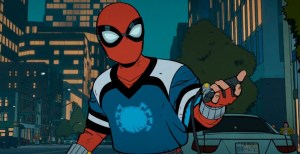In the coming months and years, Warner Bros. Discovery, along with producers James Gunn and Peter Safran, will roll out a new DC Universe — a shared continuity running through TV, film, animation, and gaming. The hope is that this new DC Universe will have a unified vision — and that it will appeal to the masses in a way that the last seven years of DC films have failed to do. Since the release of Justice League in 2017, DC’s movies have struggled to make any kind of serious headway in the market, with both critical and financial disappointments stacking up.
Videos by ComicBook.com
It’s a tense time for comic book adaptations. After a decade of being the dominant form of blockbuster in theaters and one of the most popular genres on TV, it feels like all of that is collapsing in on itself quickly. The Arrowverse is dead, Marvel’s movies have felt less and less like appointment viewing, and The Flash was perhaps the genre’s (and Warner Bros.’) most embarrassing and damaging failure since Justice League.
Enter Gunn and Safran, who have to figure out how to create a cinematic universe from scratch in this environment. For years now, Warner Bros. have been looking for their own version of Kevin Feige — but now that they have one, there’s a clear truth that Warners might not want to hear: simply copying the Marvel method won’t work in 2023.
Gunn and Safran are pretty savvy producers, and Gunn is obviously a pretty thoughtful writer and director, so it’s likely they already know this. The question is whether they can crack the code for creating an interconnected cinematic universe that resonates with fans. Let’s take a look at some of the challenges:
In the immediate wake of Marvel’s The Avengers, it was clear that a shared cinematic universe, like a shared universe in comic books, was a huge boon to Marvel’s success. People saw Thanos in that post-credits scene, and rushed out to watch basically everything the studio put out so they wouldn’t miss anything on the road to Infinity War. Since Endgame, though, the sense of urgency seems to have faded somewhat. That coincided with the pandemic, which has hurt everyone’s box office numbers across the board, making it nearly impossible to assess which of Marvel’s challenges are pandemic-related and which are tied to a lack of enthusiasm for the current crop of new characters and franchises. It doesn’t help that the Thor and Black Panther franchises were coming off enormous success with both fans and critics, only to deliver installments that were met with respectable box office hauls but not much in the way of a cultural footprint.
Over at DC, things are more dire. While both Man of Steel and Batman v Superman: Dawn of Justice did big numbers, neither hit the kind of massive, Avengers– or Dark Knight-level box office or audience appeal that Warner Bros. had hoped for. Seeing Marvel’s success across town and wondering why they couldn’t seem to tap into that for themselves, Warners seems to have panicked and started making wild, irrational moves like second-guessing and badgering Zack Snyder while he was deep in production on Justice League, all while insisting the movie hang onto its release date. The result was a mess, and a massive embarrassment that the brand has not really recovered from.
There have been some good movies made at WB and DC since then, and some of them even made money. Still, the disastrous reception of Justice League and the forking of the DC fandom afterwards — dividing up pro- and anti-Snyder fans into increasingly entrenched camps — has made it difficult (bordering on impossible) to please most of the people most of the time. That’s a problem: if your goal is to make crowd-pleasing blockbusters that earn upwards of $1 billion at the box office, you need to…y’know…please the crowd.
There’s a solution here. Gunn has it mostly right with his repeated claims that genre fatigue can be defeated by making movies that people are excited to go see. You can see that in action with both Guardians of the Galaxy vol. 3 and Spider-Man: Across the Spider-Verse, which are two of the year’s three highest-grossing films and have great Rotten Tomatoes scores and CinemaScores. Still, those are sequels to beloved movies with fairly minimal baggage. The same can’t be said for basically anything coming out of Warners right now.
There’s one more part of the shared universe that Gunn and Safran will have to work around.
The “shared” part.
Over at Marvel, the post-Avengers feeling of excitement whenever a new MCU movie came out has faded, and for many casual fans, the non-stop firehose of Marvel movies and shows now feel as much like an obligation as a privilege. “Am I going to have to watch a bunch of movies I have no interest in, so that The Kang Dynasty makes sense?” Is not an unreasonable question to have, and the answer, at least up to this point, has been “Well…kinda, yeah.”
It seems like some people have just checked out, feeling like it’s a lot of time and money to insist they spend. And if that’s a problem at Marvel, it’s a catastrophe at DC. In a world where the shared universe never really came into sharp focus, audiences have been reluctant to sign on for movies like Black Adam and Shazam: Fury of the Gods, which felt like they were unlikely to be “important” in the scheme of things. By the time The Flash rolled around, it was clear that Gunn’s universe was going to be a near-total reboot, so anyone who might have felt obligated to watch a movie they weren’t excited for…well…just didn’t.
That’s the balance that Gunn and Safran will have to strike. Not only will they have to make good movies (and shows, etc. etc.) that people want to see, but they will have to make it feel like the connections between the projects are meaningful without being a burden. You want people to want to watch Booster Gold because they’re excited about Blue Beetle 2, not feel like they have to watch Booster Gold to understand Blue Beetle 2.
(Yes, for the sake of argument, we’re assuming Blue Beetle will connect. Mostly for rhetorical purposes, but the buzz seems good at this point, and its lack of obvious connection to the old world is a smart move.)
Marvel in the 1960s became a playground for writers and fans because they established that all their beloved characters shared a space, and you might bump into an old friend in an unexpected place. It wasn’t until the mid-’80s that the rise of event comics forced audiences to be constantly vigilant about what was going on in books they didn’t already read. For years, Marvel’s shared universe was more of a benefit than a detriment to storytellers and readers.
With The Avengers, Marvel ushered in the era of “event comics” for the screen, and brought with it all the problems that those comics have, from readers feeling obligated to pick up books they don’t want, to non-powered supporting casts being pared down to almost nothing. Because of the success of The Avengers, the “DC Extended Universe” always felt like it was chasing that same level of connectivity and “event”-ness. They never really stuck the landing and made the universe feel like it was a cohesive whole, essentially skipping over the ’60s and ’70s and going straight into the Secret Wars/Crisis on Infinite Earths era. The results were disastrous, and DC can’t afford to do it again.





